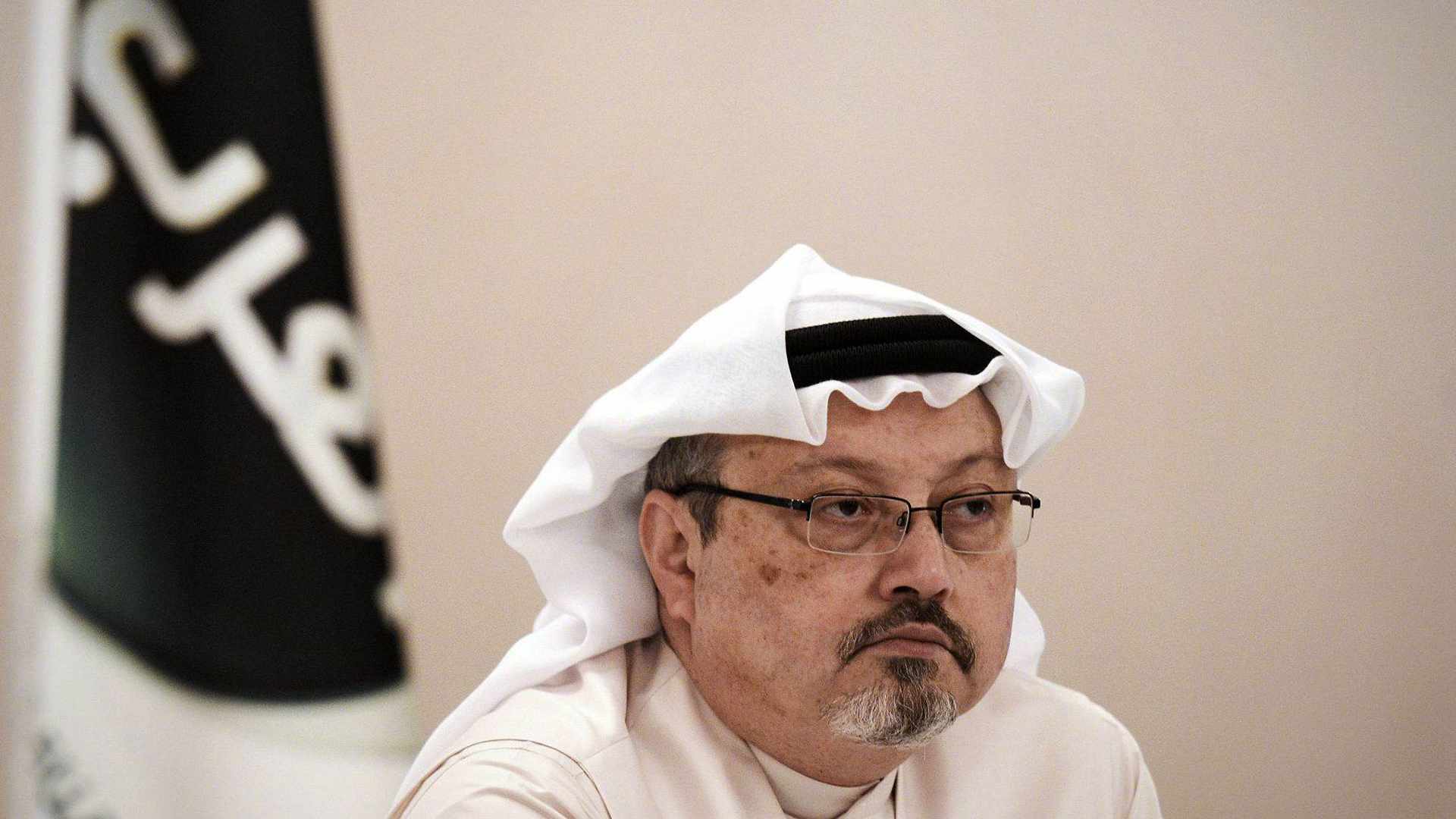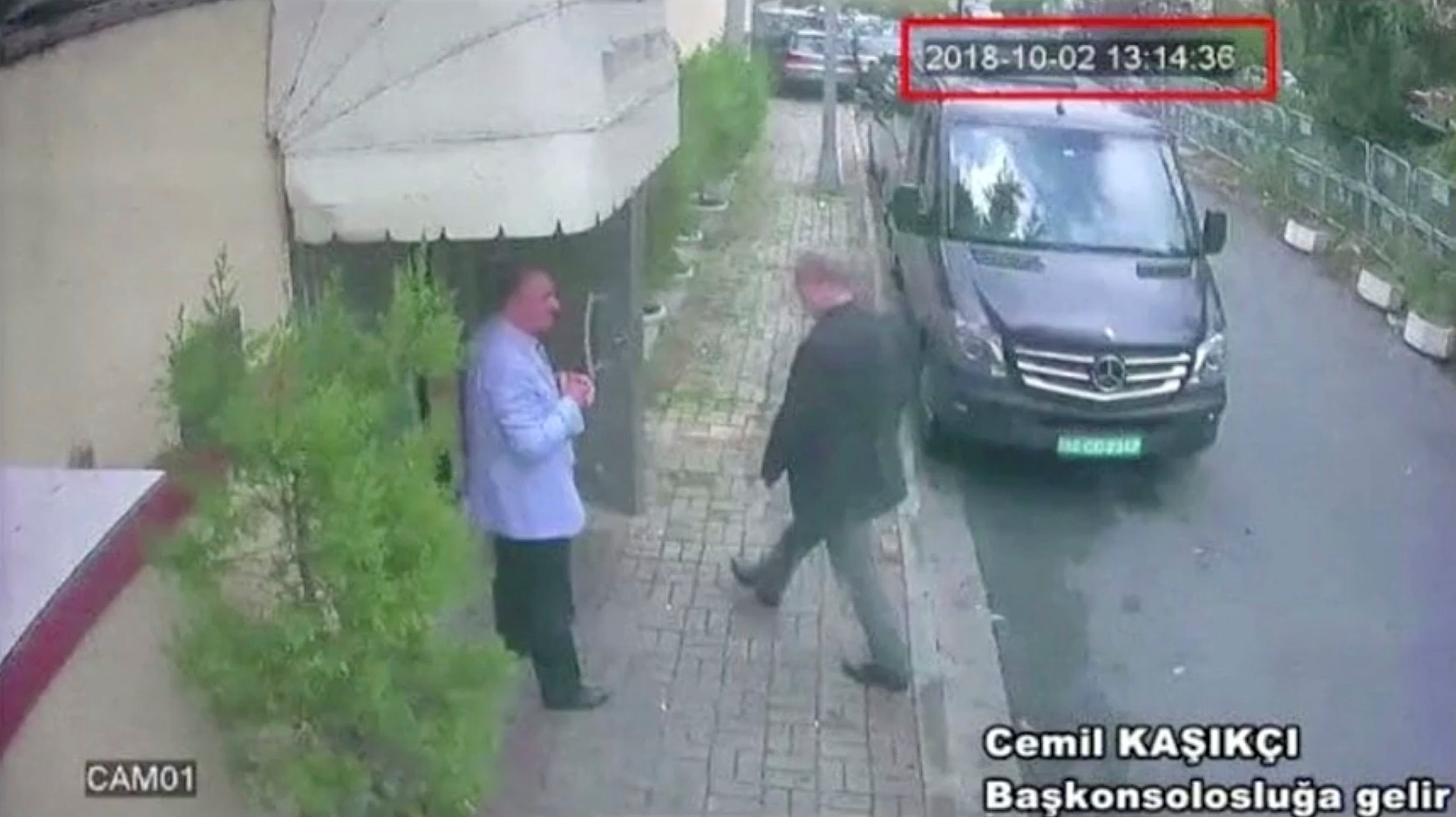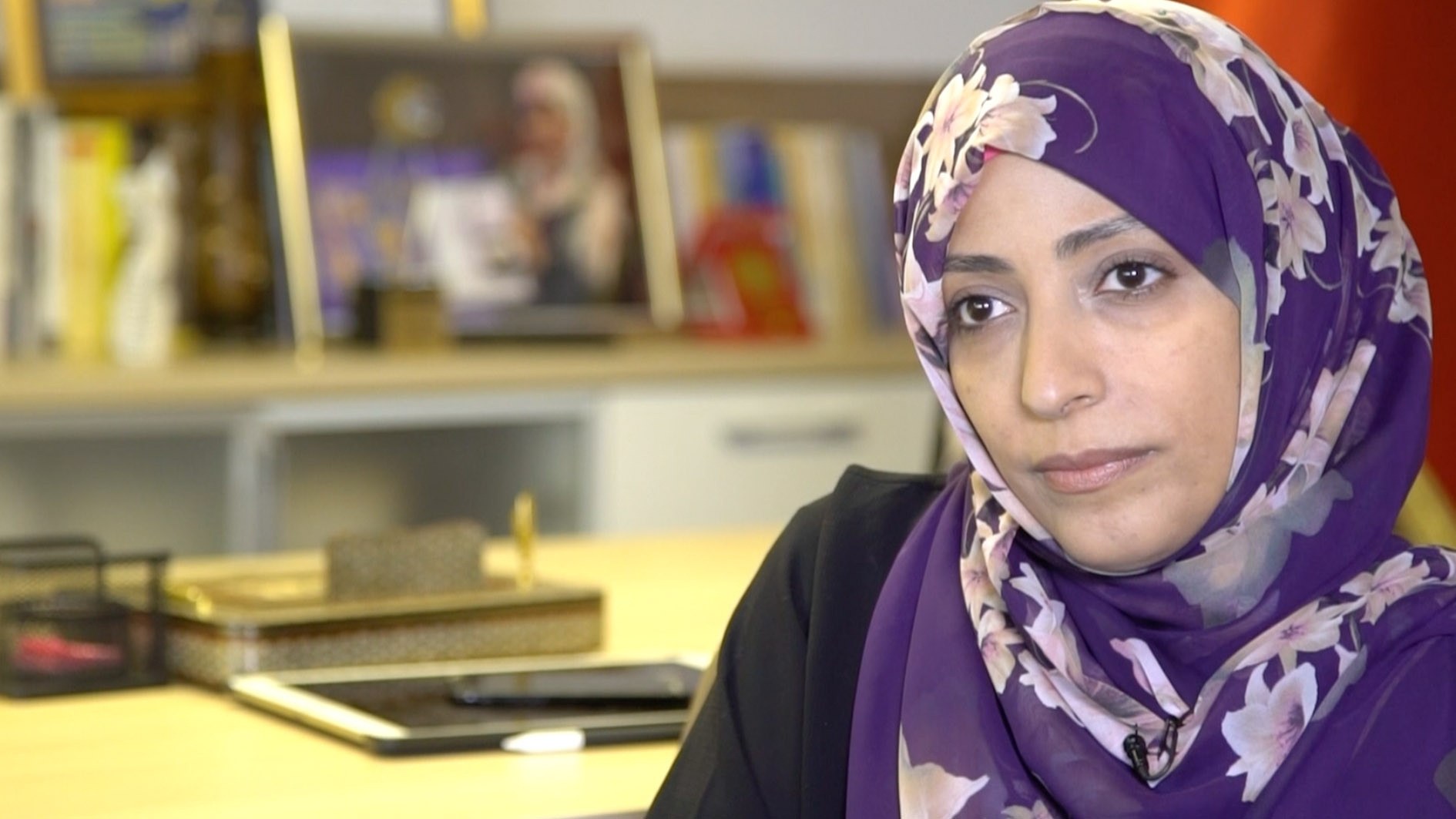
World
18:11, 18-Oct-2018
Khashoggi disappearance: Fear and hope in Istanbul
Updated
17:34, 21-Oct-2018
By Guy Henderson
04:04

When Abdulraqab Al-Abarah tells me his story, he finds it hard to stop.
The words flow from the news editor of Yemen's Belqeez television in a stream of half-constrained emotion. It's understandable.
"My father was a General," Al-Abarah tells me. "When the Saudi-led coalition killed him in an airstrike, they took something like 200 other civilians." Al-Abarah says he was there when it happened and was lucky to escape.
Everyone in this office has a story. Nearly all of them fled their home country in the wake of Yemen's Arab Spring, as revolutionary hopes began to fade, and violence and conflict tore the country apart.
So now, one of Yemen's most popular news programs is broadcast from Istanbul instead.

Protesters hold pictures of missing journalist Jamal Khashoggi during a demonstration in front of the Saudi consulate in Istanbul, October 8, 2018. /VCG Photo
Protesters hold pictures of missing journalist Jamal Khashoggi during a demonstration in front of the Saudi consulate in Istanbul, October 8, 2018. /VCG Photo
Belqeez focuses largely on Yemen's civil war. To do that, it needs reporters in the field whose coverage of the conflict's horrors makes them often well-known faces. That could be a death sentence but they do it anyway.
So that is the standard this newsroom has set. In the wake of the disappearance of Saudi journalist Jamal Khashoggi in the city, the team here continued their work. They are fearful though.
Khashoggi did not even call himself a dissident. He was part of the establishment, and found a platform to transmit his critical message of Saudi policy. That is what Belqeez is doing too.
Some of those we spoke to could not bring their families with them to Turkey. As order broke down in Yemen, I'm told many foreign embassies left the country, some to neighboring Saudi Arabia. So for those looking for a new life elsewhere and the visa to accompany it, the clearest path can often be through Riyadh.

A still image taken from surveillance footage shows Saudi journalist Jamal Khashoggi entering Saudi Arabia's consulate in Istanbul, October 2, 2018. /VCG Photo
A still image taken from surveillance footage shows Saudi journalist Jamal Khashoggi entering Saudi Arabia's consulate in Istanbul, October 2, 2018. /VCG Photo
I saw no proof in my short time in their office that the loved ones of Belqeez employees still in Yemen find it harder to leave because of the work their relatives do. But that is what some in the team here fear. That is the sacrifice they are willing to risk for carrying out their work.
02:42

No doubt the presence of an inspirational neighbor helps.
Tawakkol Kerman became the symbol of the revolution back in 2011, and won a Nobel Peace Prize that year. Kerman is a lady well used to risking her life and has no plans to change anything she does after what is alleged to have happened to Khashoggi. She, too, is highly critical of Saudi policy in Yemen. Kerman spends more time in the United States nowadays, just as Khashoggi did. There is, she says, much work to be done in the US to push for a peaceful future for the war-torn homeland she left.
I asked Kerman where the hope had gone since those heady days of 2011: the counter-revolutions, the return of the "strongman", and now the new and worrying potential precedent of the death of a prominent Saudi critic on foreign soil. Perhaps her response could be a reason for the journalists I met here to remain hopeful.
"You can't measure the age of nations by just one year, two years, or six years. It's just seven years. It's just seven years since we started our sacrifice for freedom and justice. We expect this sacrifice, this price. We know that freedom costs. All that deterioration – but we know that one day we will arrive."

SITEMAP
Copyright © 2018 CGTN. Beijing ICP prepared NO.16065310-3
Copyright © 2018 CGTN. Beijing ICP prepared NO.16065310-3